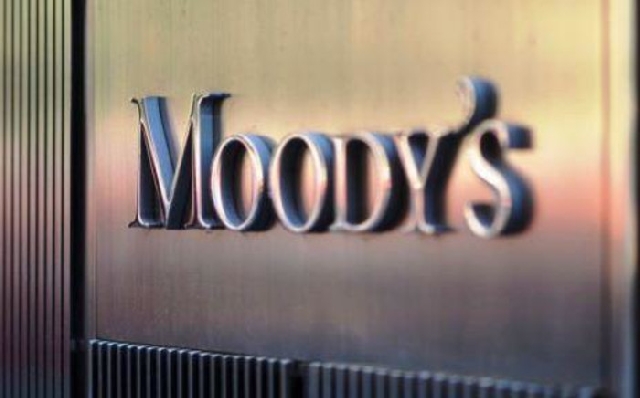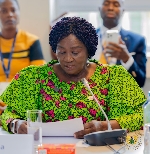Moody’s downgrades outlook for several major African banking systems
 Moody's
Moody's
Moody’s has downgraded its outlook for banking systems in South Africa, Nigeria and Morocco amid concerns over the fallout from the coronavirus pandemic and tumbling oil prices.
The rating agency downgraded them from stable to negative, and said it expects the coronavirus to cause banks’ asset quality to deteriorate, put pressure on profitability, and also hit economic growth in each country.
Although the entire continent of Africa currently accounts for less than 1% of the more-than 3 million confirmed cases of the coronavirus worldwide, the continent’s exposure to natural resources and reliance on exports mean it is still susceptible to global economic shutdowns.
Already facing a recession and deteriorating sovereign debt profile, South Africa will likely see the creditworthiness of its banking system weaken over the next 12 to 18 months as the coronavirus hits loan performance and profitability while severely weighing on growth, Moody’s projected in a release Monday.
President Cyril Ramaphosa last week unveiled a $26 billion fiscal stimulus package, the largest in the country’s history, in a bid to mitigate the economic repercussions of the pandemic. South Africa plans to begin a gradual-phased easing of its lockdown measures this Friday.
“The fiscal package announced last week and regulatory measures to ensure adequate liquidity in money and government bond markets and loosening of capital requirements to free capital for on-lending by banks will provide some support,” Moody’s analysts noted.
“However, despite these measures and the banks’ solid risk management, we still expect a material deterioration in the credit risk exposure of South African banks.”
The International Monetary Fund (IMF) anticipates that South African GDP (gross domestic product) will shrink by 5.8% in 2020, and the government has approached the World Bank, IMF, BRICS New Development Bank and the African Development Bank for loan financing in its bid to shore up the economy.
Nigeria and Morocco
Nigeria, Africa’s largest economy, faces direct exposure to both the pandemic and the recent capitulation in oil prices. It means banks will face weakening loan quality and foreign-currency liquidity, Moody’s highlighted, on top of the existing challenges of slow economic growth and rising regulatory costs.
The IMF on Tuesday approved $3.4 billion in emergency funding for Nigeria, to be repaid within five years, marking the largest loan granted to any African country’s pandemic response effort thus far.
“Banks’ exposure to the oil and gas industry is substantial, at around 27% of total loans at the end of 2019, making the system susceptible to the oil price slump,” Moody’s said.
“The banking system is also highly dollarized, putting pressure on both assets and liabilities in the event of a naira devaluation. Nigeria’s largest banks, however, will continue to benefit from high government support.”
In the IMF’s report Tuesday, Deputy Managing Director Mitsuhiro Furusawa acknowledged that the pandemic, falling oil prices and demand shortages are “severely impacting economic activity in Nigeria.” The IMF has projected that real GDP in the country will contract by 3.4% in 2020.
“These shocks have created large external and financing needs for 2020. Additional declines in oil prices and more protracted containment measures would seriously affect the real and financial sectors and strain the country’s financing,” Furusawa wrote.
In Morocco, Moody’s projected that the virus weighing on growth will exacerbate the existing challenge of low rainfall harming the dominant agricultural sector, though this may be partially offset by lower oil prices since Morocco is a net importer.
“We expect problem loans to rise due to borrower concentrations, with significant exposure to SMEs in Morocco and Sub-Saharan Africa countries,” the Moody’s report predicted.
“Although Moroccan banks’ capitalization is relatively modest, they benefit from good access to funding and liquidity, which will help buffer the impact.”
The IMF projects that Morocco’s economy will contract by 3.7% in 2020.
Source: CNBC
Trending Business

GIPC joins trade delegation at Burkina Faso forum
11:18
Ghana, Burkina Faso deepen trade and investment ties at Ouagadougou forum
11:15
Zambian delegation visits Tarkwa Goldfields to study Ghana’s mining best practices
01:52
Fourth Estate lied: NLA never paid GHS 37 million as profit for the state in 2018
01:54
T-Bills: Gov't exceeds target via 23% oversubscription
14:42
Amen Amen Institute partner UN to donate to Ministry of Food and Agriculture in support of World Food Day
12:11
Ghana to prioritise value addition in cocoa sector — Vice President
00:15
IACG urges 'catch them young' approach to engage the youth to embrace insurance
19:37
DVLA set to establish new ultra-modern operational centre in North Dayi
14:24
Gov't to cough up US$5 billion in judgement debt, if it cancels KGL-NLA deal-Razak Kojo Opoku reveals
13:19




